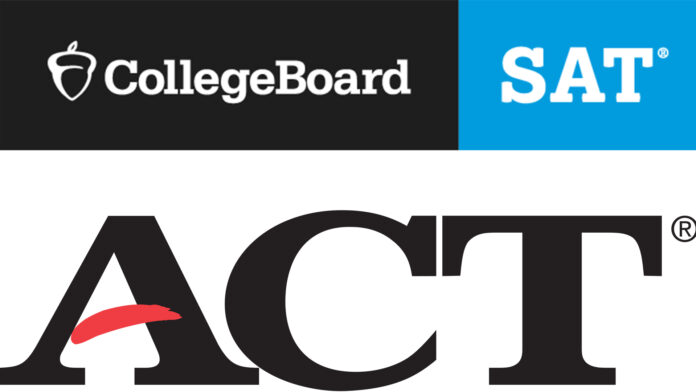UCOP promises unspecified economic aid for struggling students, no consideration of tuition reduction, partial refund
In response to the evolving COVID-19 pandemic, the UC Office of the President (UCOP) has altered some admissions requirements for admitted students and those returning for the upcoming 2020-21 academic year. Students impacted by the pandemic can file for an additional review of their finances in order to account for recent and expected changes in student and family income.
The UC also relaxed other admissions policies to ensure that transfer and high school students do not face penalties for failing to earn letter grades or take standardized tests, and it has temporarily suspended letter grade requirements for A-G courses from Spring 2020 for all students, including the newest class of admitted Aggies. Any A-G courses completed with passing or credit given grades are satisfactory for this quarter.
For current juniors in high school and other transfer students, the UC has suspended standardized test requirements for those applying for Fall 2021, meaning students do not have to report their ACT or SAT test scores to apply. The UC has not yet made a decision as to whether it will require the SAT/ACT for later admission cycles, though a faculty report released in February recommended the UC keep the SAT/ACT testing requirement.
Despite some flexibility, the UC has remained rigid for other enrollment procedures. Students are still expected to accept their offer of admission by May 1 for freshmen and June 1 for transfers and pay the accompanying deposit.
Many admitted students’ economic conditions have been dramatically altered by the ongoing pandemic. In the past weeks, 10 million Americans applied for unemployment benefits. With businesses remaining closed and government subsidies not yet dispersed, the number affected is expected to rise in coming weeks.
For many recently-admitted and returning Aggies, COVID-19 has dramatically impacted the feasibility of attending university. Tuition alone ranges around $14,000 for in-state students and around $40,000 for out-of-state students.
In response to expected changes in students’ financial need, the UCOP website encourages students to get in touch with their UC campus financial aid offices.
“Students who need additional time, or who need a deferment of a deposit, should contact their campus admissions office directly,” according to the website.
While no formal allowances are outlined for offers of admissions, the website says campuses plan to provide maximum flexibility to students.
Sarah McBride, the media and communications strategist for UCOP commented further on decisions to alter admissions requirements for students in light of the COVID-19 pandemic.
“UC welcomes any student whose family lost a job to request a review of their financial aid,” McBride said. “Petitions for a review will take place over the summer.”
While students are encouraged to apply for additional aid, the amount of aid available for these students is not known at this time. This amount will depend on future federal and state funding allocations, according to McBride.
The UC plans to provide additional support for students impacted by COVID-19. As of now, however, there is no discussion to alter the cost of tuition, which likely remains the main obstacle for students’ ability to attend any UC campus in Fall 2020.
While UC President Janet Napolitano recently announced that there will be no career employee layoffs related to COVID-19, student employees have already faced a loss of hours or lost jobs completely as a result of the pandemic. As of the time of publication, there were no scheduled plans for compensation or support for affected students.
While UC leadership plans to address the unprecedented public health crisis, students are demanding greater, immediate action.
JB Martinez, a fourth-year political science major as well as an ASUCD senator, is in the process of drafting a resolution demanding a partial tuition refund for current students.
“They’re not addressing the issue and ongoing problems being faced by college students right now,” Martinez said. “Some student jobs are cutting hours or laying off people, which creates an entire circuit of a lack of funds in students’ hands.”
Martinez sees a partial tuition refund as a potential, partial solution to help students struggling financially.
“Not all resources on campus are open, so [a partial refund] gives students more autonomy over how they’re spending their money and what they’re spending it on,” he said.
Many UC Davis resources, including The Pantry and counseling services, have altered hours and services due to COVID-19. Students who returned home for Spring Quarter are similarly unable to utilize services they may have previously depended on and have contributed campus fees toward.
Deborah Agee, the executive director of UC Davis Financial Aid, said the office is continuing to find different ways to assist students.
“Every year there are some students whose family financial circumstances are significantly different than from a couple years ago,” Agee said. “UC Davis Financial Aid and
Scholarships can evaluate a student’s 2020-21 FAFSA or Dream Act application data in
such cases to reflect significant changes to family financial conditions due to unusual
circumstances such as job loss, loss of a family member or medical expenses.”
The same procedures are now being used to assist students impacted by COVID-19.
While Spring Quarter financial aid has been distributed already, Agee said students enrolled in Summer Sessions or Fall Quarter can go online and apply for additional aid, adding that students in crisis can contact the UC Davis Emergency Crisis Response Team for immediate help.
Written by: Ally Russell — campus@theaggie.org




